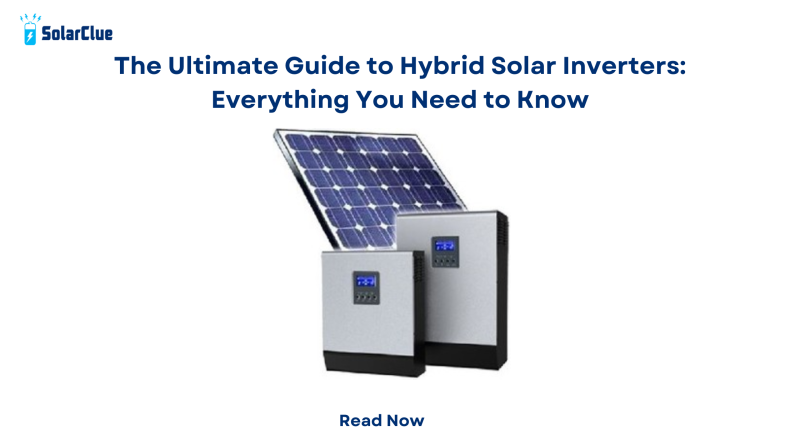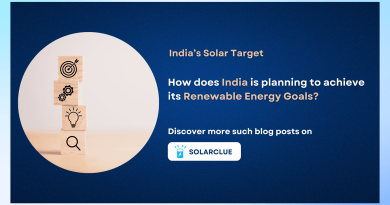The Ultimate Guide to Hybrid Solar Inverters: Everything You Need to Know
Ever wondered how you can make the most of your solar panels and keep the lights on even when the sun’s not shining?? Well, you’re in for a treat because today we’re diving into the world of hybrid solar inverters. These devices are changing the game when it comes to solar power, and I’m here to break it all down for you in simple terms. So, grab a cup of coffee, get comfy, and let’s explore the ins and outs of hybrid solar inverters together!
Table of Contents
What is a Hybrid Solar Inverter?
Let’s start with the basics. A hybrid solar inverter is like the brain of your solar power system. It’s a device that does two main jobs:
1.It converts the DC (direct current) electricity from your solar panels into AC (alternating current) electricity that your home appliances can use.
2.It manages the flow of energy between your solar panels, battery storage (if you have it), and the power grid.
Think of it as a traffic cop for electricity, directing power where it needs to go and making sure everything runs smoothly.
How is a Hybrid Inverter Different from Other Types?
You might be wondering, “What makes a hybrid inverter special?” Well, let’s compare it to its cousins:
1.String Inverters: These are the most common type. They handle the DC to AC conversion for a whole string of solar panels but don’t work with batteries.
2.Microinverters: These little guys are attached to each solar panel and convert DC to AC right at the source. They’re great for complex roof setups but don’t deal with battery storage.
3.Battery Inverters: These work with batteries but don’t directly connect to solar panels.
A hybrid inverter combines the best of all worlds. It can manage your solar panels, work with batteries, and connect to the grid. It’s like having a Swiss Army knife for your solar system!
The Benefits of Hybrid Solar Inverters
Now that we know what they are, let’s talk about why you might want one:
1.Energy Independence: With a hybrid inverter, you can store excess solar power in batteries for later use. This means you can use your own clean energy even when the sun’s not shining.
2.Lower Electricity Bills: By using more of your own solar power and less from the grid, you can really cut down on those annoying electricity bills.
3.Backup Power: If there’s a blackout, a hybrid system can keep your essential appliances running using stored battery power.
4.Future-Proofing: Even if you don’t have batteries now, a hybrid inverter makes it easy to add them later without making extensive changes to your whole system.
5.Smart Energy Management: Many hybrid inverters come with smart features that help you monitor and optimize your energy use.
How Hybrid Solar Inverters Work
Let’s break down the magic happening inside these clever devices:
1.Solar Panel Connection: The inverter takes in the DC electricity produced by your solar panels.
2.DC to AC Conversion: It then converts this DC power into AC power that your home can use.
3.Power Distribution: The inverter decides where to send this power. It might:
– Send it directly to your home appliances
– Store it in batteries for later use
– Feed it back into the grid (if allowed in your area)
4.Battery Management: When your solar panels aren’t producing enough power (like at night), the inverter can draw power from your batteries and convert it to AC for your home.
5.Grid Interaction: If your batteries are full and you’re producing more power than you need, the inverter can feed excess energy back to the grid. When you’re not producing enough, it can draw power from the grid to supplement your needs.
6.Monitoring: Many hybrid inverters come with monitoring systems that let you track your energy production, consumption, and storage in real-time.
Key Features to Look for in a Hybrid Solar Inverter
If you’re thinking of getting a hybrid inverter, here are some important features to consider:
1.Power Rating: This tells you how much power the inverter can handle. Make sure it matches your solar panel system and energy needs.
2.Battery Compatibility: Check that the inverter works with the type of batteries you have or plan to get.
3.Efficiency: Look for inverters with high efficiency ratings to get the most out of your solar panels.
4.Smart Features: Many modern inverters offer smartphone apps and online portals for easy monitoring and control.
5.Warranty: A good warranty can give you peace of mind. Many quality inverters come with 5-10 year warranties.
6.Off-Grid Capability: Some hybrid inverters can operate in off-grid mode, providing power even when disconnected from the main grid.
7.Expandability: Consider an inverter that allows you to add more solar panels or batteries in the future as your needs grow.
Installation and Maintenance
Installing a hybrid solar inverter is a job for the pros. It involves:
1.Choosing the right location: Usually indoors, away from extreme temperatures and moisture.
2.Connecting to your solar panels, batteries (if you have them), and your home’s electrical system.
3.Setting up monitoring systems and configuring settings.
As for maintenance, hybrid inverters are pretty low-maintenance devices. However, it’s a good idea to:
1.Keep the area around the inverter clean and well-ventilated.
2.Regularly check the monitoring system for any alerts or unusual patterns.
3.Have a professional check-up every few years to ensure everything’s running smoothly.
Cost Considerations
Hybrid inverters typically cost more upfront than standard string inverters. However, they can save you money in the long run by:
1.Reducing your reliance on grid power
2.Allowing you to store and use more of your own solar energy
3.Providing backup power during outages
4.Eliminating the need for a separate battery inverter if you decide to add storage later
The exact cost will depend on the size and features of the inverter, as well as installation costs in your area. It’s always a good idea to get quotes from several reputable solar installers to compare options.
The Future of Hybrid Solar Inverters
As renewable energy becomes more popular, hybrid inverters are likely to play an increasingly important role. We can expect to see:
1.More advanced energy management features
2.Better integration with smart home systems
3.Improved efficiency and power handling capabilities
4.Greater compatibility with a wide range of battery technologies
Some experts even predict that hybrid inverters could become the standard for new solar installations in the coming years.
Conclusion
we’ve covered a lot of ground today! From understanding what hybrid solar inverters are to exploring their benefits and features, we’ve taken a deep dive into these amazing devices. Whether you’re looking to maximize your solar investment, gain more energy independence, or just curious about the latest in solar tech, hybrid inverters are definitely worth considering.
Remember, every home and energy situation is unique, so it’s always a good idea to chat with a qualified solar installer to figure out the best solution for you. They can help you crunch the numbers and see if a hybrid inverter is the right fit for your solar dreams.
So, what do you think? Are you ready to take your solar game to the next level with a hybrid inverter? Or maybe you still have some questions? Either way, I hope this guide has shed some light on the world of hybrid solar inverters and helped you feel more informed about your energy choices. Here’s to a brighter, cleaner energy future for all of us!
Visit SolarClue® to see the Best Hybrid Solar Inverters. SolarClue® actively sells solar energy products at discounts of up to 50% on its online marketplace.
Common Questions About Hybrid Solar Inverters
1.Can I add a hybrid inverter to my existing solar system?
It’s possible, but it often requires significant changes to your system. It’s usually easier to install a hybrid inverter when you’re setting up a new solar system.
2.Do I need batteries to use a hybrid inverter?
No, you can use a hybrid inverter without batteries and add them later if you want.
3.How long do hybrid inverters last?
With proper maintenance, a good quality hybrid inverter can last 10-15 years or more.
4.Can a hybrid inverter power my whole house during a blackout?
It depends on the size of your inverter, your battery capacity, and your energy use. Many systems are designed to power essential appliances during outages.
5.Are hybrid inverters noisy?
Most modern hybrid inverters are very quiet. You might hear a slight hum or fan noise, but it shouldn’t be noticeable in most home settings.


